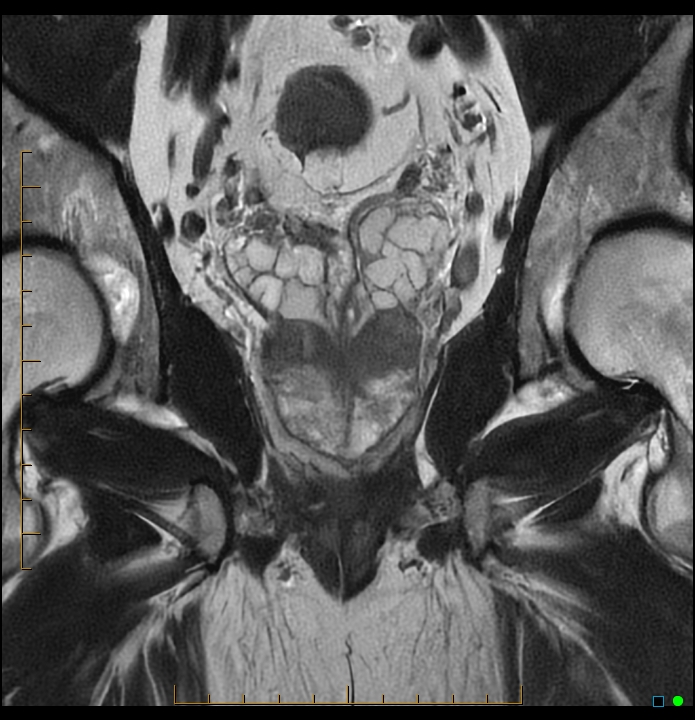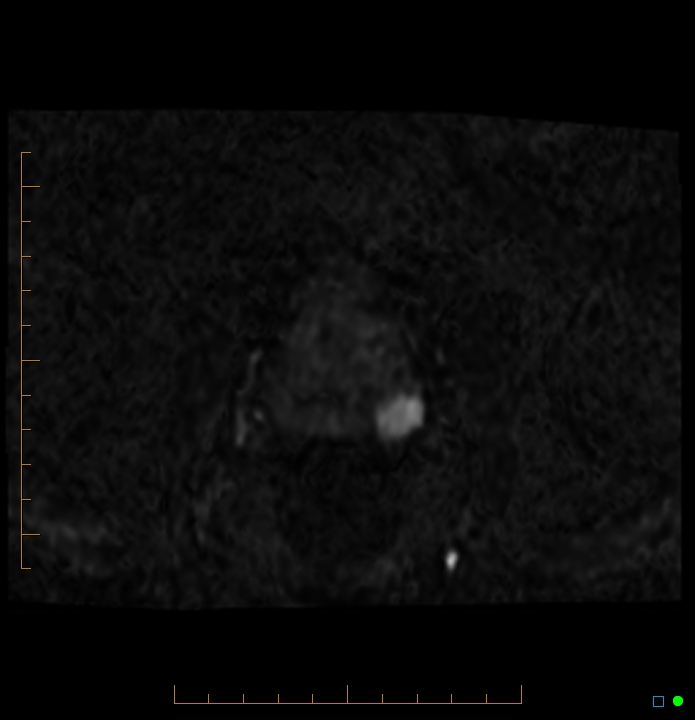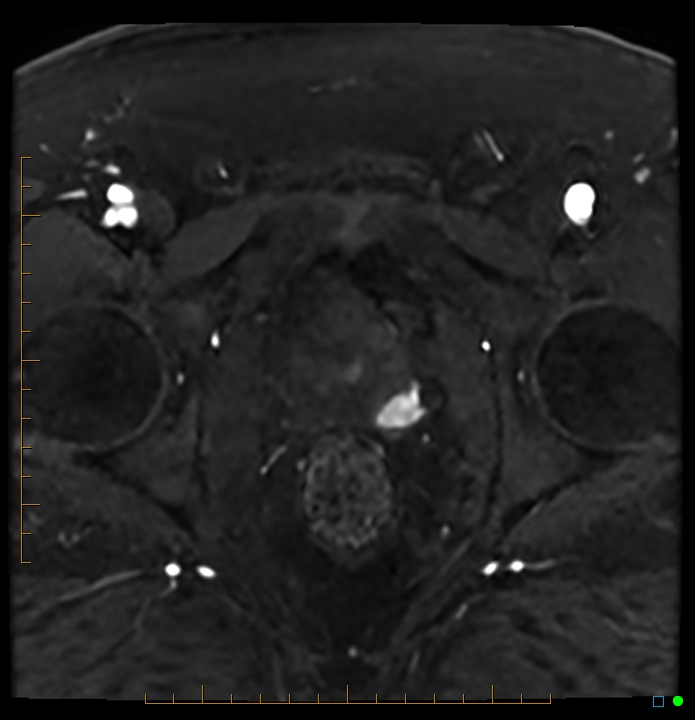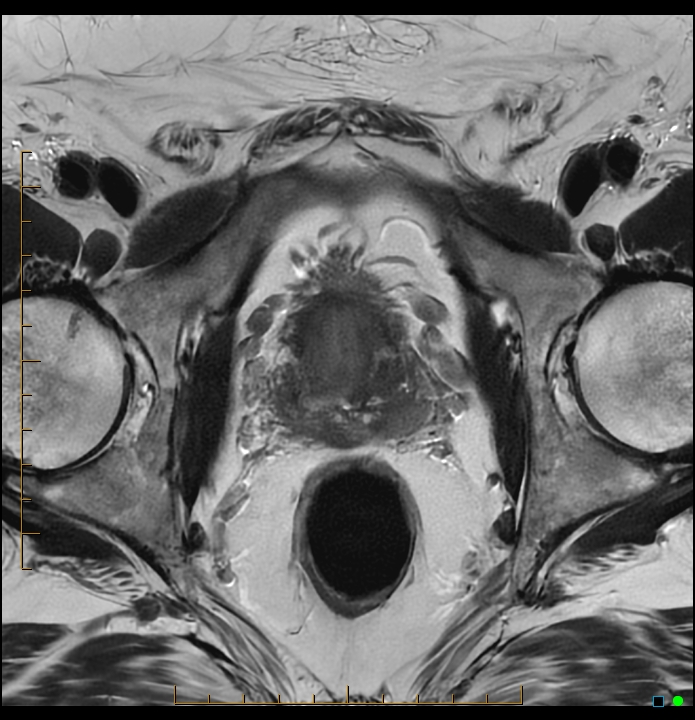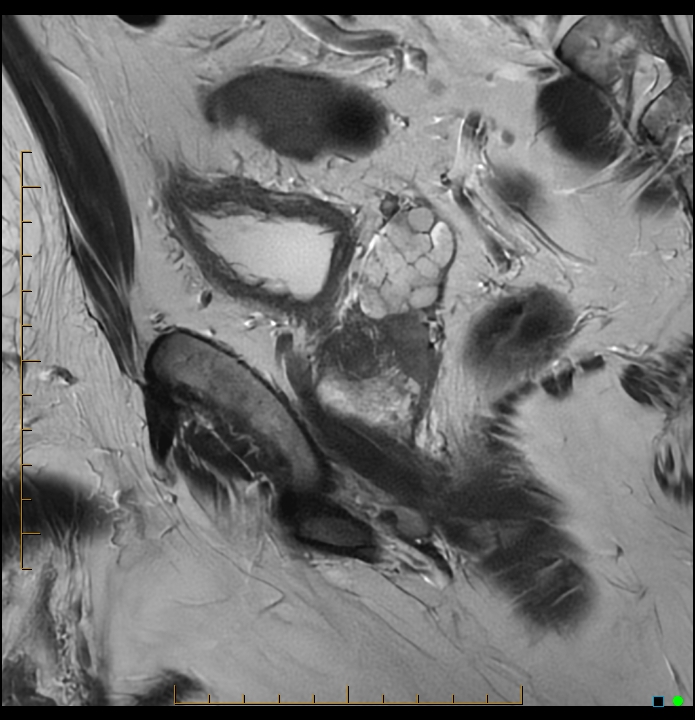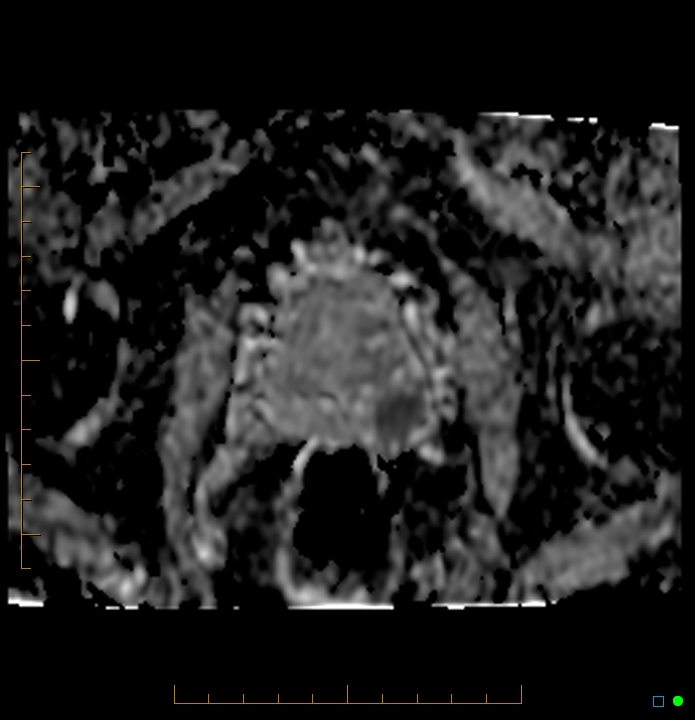Prostate MRI
Prostate cancer is the most common new cancer diagnosed in Canadian men with approximately 1 in every 9 men diagnosed with prostate cancer in their lifetime (1). Alberta has the highest incidence of prostate cancer amongst all provinces in Canada at 138 per 100,000. Fortunately, most men will not die from this disease, but adequate staging is critical for proper management (2).
Why Prostate MRI?
MRI is a non-invasive, painless, radiation-free way to diagnose prostate cancer. In the past, MRI was used in specific circumstances for patients with known prostate cancer. Most patients with a clinically suspected prostate cancer would have been seen by a prostate specialist and often been given an invasive biopsy through the rectum. This procedure can be painful, has risks of bleeding and serious infection, and does not always provide an answer. In patients with negative biopsies, long-term monitoring and possible repeat biopsies are often required.
As MRI technology has advanced, new studies demonstrate the utility of MRI for identifying and stratifying patients with clinically significant diseases (3-6). Pre-biopsy MRI can improve the diagnosis of clinically significant disease, reduce complications from biopsy, and even prevent unnecessary biopsies in some patients (2,5). Many guidelines published since 2018 now support MRI as part of the diagnostic pathway in patients who have suspected prostate cancer but have not had a prior MRI (7-10).
Who is Eligible for a Prostate MRI?
There are several reasons your doctor might recommend a prostate MRI. These include:
- Your doctor suspects prostate cancer
Prostate-specific antigen (PSA) > 4.0
PSA density > 0.15
Abnormal digital rectal exam (DRE)
Family history of prostate cancer - You have had a previous negative prostate biopsy but your doctor still suspects prostate cancer.
- You have known prostate cancer, and your doctor wants to determine the extent of the disease.
- You have known low-risk prostate cancer and are being monitored with regular clinical and imaging follow-up.
Why Have a Private MRI?
Prostate MRIs can be arranged through conventional pathways in Alberta, although the wait for these studies can be long and the studies are only performed in the hospital setting. You may prefer the convenience of booking your imaging study around your own schedule and with the comfort of a welcoming outpatient clinic setting.
Cost
Alberta Health Services does not cover private MRI services outside of the hospital. The cost of a prostate MRI is $950, and contrast is included.
What to Expect for My Prostate MRI?
You should arrive 30 minutes early for your appointment in order to complete some paperwork and screening before entering the MRI area. An intravenous (IV) line will be placed for contrast required during your study. Your study will take approximately 30 minutes. We DO NOT use a rectal coil for this study. Once complete, your doctor will receive a report with the results of your exam within a couple of business days.
How Can I Book My Appointment?
You will require a requisition from your doctor for this study. Once you have this requisition, more information about booking your appointment can be found here.
Exam Preparation
Please visit our Prostate Exam Prep page for detailed information on how to prepare for the exam.
References
- Canadian Cancer Society, Statistics Canada, and Public Health Agency of Canada. Canadian Cancers Statistics 2019. Published September 2019. Retrieved December 17, 2020 from: https://www.cancer.ca/~/media/cancer.ca/CW/cancer%20information/cancer%20101/Canadian%20cancer%20statistics/Canadian-Cancer-Statistics-2019-EN.pdf?la=en.
- Tempany CMC, Carroll PR, Leapman MS. The role of magnetic resonance imaging in prostate Cancer. Up To Date. Last Updated May 4, 2020. Retrieved October 18, 2020.
- Kasivisvanathan V, Rannikko AS, Borghi B, et al. MRI-targeted or standard biopsy for prostate-cancer diagnosis. N Engl J Med 2018;378:1767-1777.
- Ahmed HU, Bosaily AES, Brown LC, et al. Diagnostic accuracy of multi-parametric MRI and TRUS biopsy in prostate cancer (PROMIS): a paired validating confirmatory study. Lancet 2017;389:815-822.
- Van der Leest M, Cornel E, Israel B, et al. Head-to-head comparison of tranrectal ultrasound biopsy versus multiparametric prostate resonance imaging with subsequent magnetic resonance-guided biopsy in biopsy-naïve men with elevated prostate-specific antigen: A large prospective multicenter clinical study. Eur Urol 2019;75(4):570-478.
- Rouviere O, Puech P, Renard-Penna R, et al. Use of prostate systemic and targeted biopsy on the bsis of multiparametric MRI in biopsy-naïve patients (MRI-FIRST): a prospective multicenter, paired diagnostic study. Lancet Oncol 2019;20(1):100-109.
- Bjurlin MA, Carroll PR, Eggener S, et al. Update of the standard operating procedure on the use of multiparametric magnetic resonance imaging for the diagnosis, staging and management of prostate cacner. J Urol 2020;203(4):706-712.
- National Institute for Health and Care Excellence (NICE). Prostate cancer: diagnosis and management. Published May 9, 2019. Retrieved December 19, 2020 from: https://www.nice.org.uk/guidance/ng131
- Padhani AR, Barentsz J, Villeirs G, et al. PI-RADS Steering Committee: he PI—RADS multiparametric MRI and MRI-directed biopsy pathway. Radiology 2019;11:182946.
- American College of Radiology. Prostate MRI model policy. Published August 2019. Retrieved December 19, 2020 from: https://www.acr.org/-/media/ACR/Files/Advocacy/AIA/Prostate-MRI-Model-Policy72219.pdf
Exam Preparation
Being prepared for your prostate MRI helps us take the best possible images for diagnosis. Please visit our exam prep page for more instructions specific to prostate MRI preparation.
